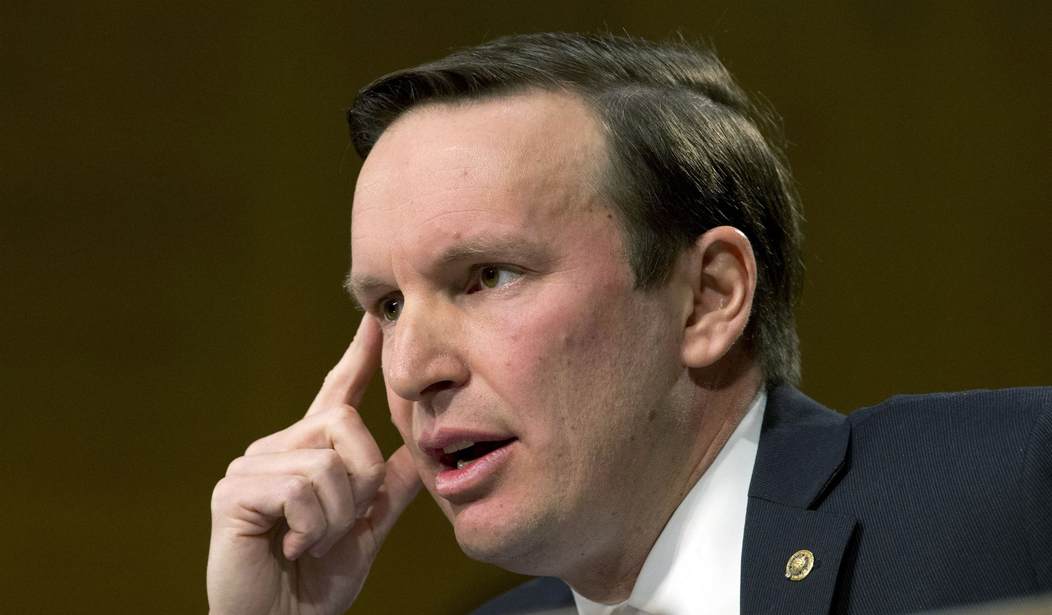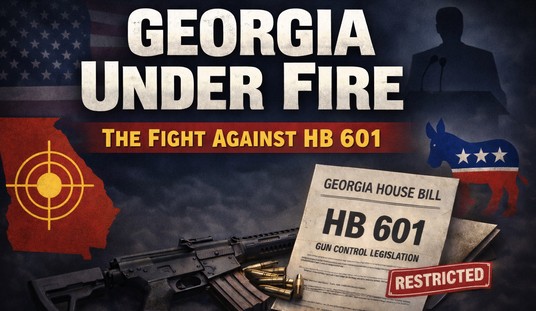I don’t trust Politifact all that much.
In theory, facts are facts and there shouldn’t be a lot of discussion. In reality, I’ve seen Politifact contort itself to defend some real whoppers.
So I was a little shocked when I read a fact-check of Sen. Chris Murphy.
After all, I tend to expect a vigorous defense of the Connecticut Democrat. Thats…not quite what happened.
Sen. Chris Murphy, D-Conn., one of Congress’ leading advocates of stricter gun laws, recently tweeted a statistic that he said shows that more restrictive gun laws can save lives.
“The 5 states with the highest gun homicide rates in the nation all have loose gun laws” while “the 5 states with the lowest rates have some of the toughest laws,” Murphy tweeted April 3.
Murphy listed what he said were the top five states for gun homicide rates: Alaska, Alabama, Montana, Louisiana and Mississippi (though he incorrectly used the postal abbreviation for Michigan). These states each have a failing grade on gun laws from the Giffords Law Center, which supports laws to prevent gun violence.
The states he said had the lowest gun homicide rates were Hawaii, New York, Massachusetts, Rhode Island and Connecticut. Those states have high marks from Giffords for gun laws, because they have policies such as universal background checks, assault weapon restrictions, a large capacity magazine ban and strong concealed carry laws.
Shortly after Murphy tweeted, a reader sent PolitiFact the link and asked whether Murphy’s claim is correct.
When we examined the claim further, we found issues with Murphy’s framing of the data and his oversimplified conclusion.
Wait…what?
Well, for one thing, Politifact notes that there is a note on the original tweet pointing out that “gun deaths” includes suicides, for one thing. While Murphy’s office has since amended the tweet, claiming it’s really just more evidence gun control is needed, that wasn’t the only point Politifact hit them on.
Regardless of how suicides shift the data, the connection between gun laws and death rates is still not as direct as Murphy presented.
Some states with less restrictive gun laws — such as Nebraska, North Dakota, Idaho, Maine, New Hampshire and Vermont — have low rates of gun homicides.
And some states with restrictive gun laws, including Illinois and Maryland, have high rates of gun homicide.
Experts say that factors beyond gun laws can influence a state’s gun homicide rate.
“There is no simple correlation of gun control severity and violence rates,” said Gary Kleck, a Florida State University emeritus professor of criminology.
Obviously, I agree.
For example, if you look at the states with low gun death rates, we also see other factors that may well contribute to those low rates such as economic factors. Less poverty means less crime and less suicide, for example.
The truth of the matter, one that Murphy doesn’t want to delve into at all, is that “gun deaths” is a statistic that measures an effect that we really don’t understand the cause.
Further, even if you remove the guns, people aren’t suddenly going to stop committing crimes or being suicidal. That’s simply not how people work and they never have.
Yet if Murphy and other anti-gun lawmakers at least considered looking at the root causes for these deaths–why people turn to crime or increasing mental health resources so we’d see fewer suicides, for example–then we might actually get somewhere.
I know he won’t abandon gun control as a talking point, but it’s myopic to just look at one “solution” and not look at a multi-prong approach.
In the end, Politifact marked his statement as “half true,” which is probably a fairly fair assessment. The correlation he pointed to was, in fact, there.
However, I applaud them for looking a little deeper and taking on the implications of what Murphy was saying, rather than just gloss over the face of his claims as I’ve seen them do far too many times.








